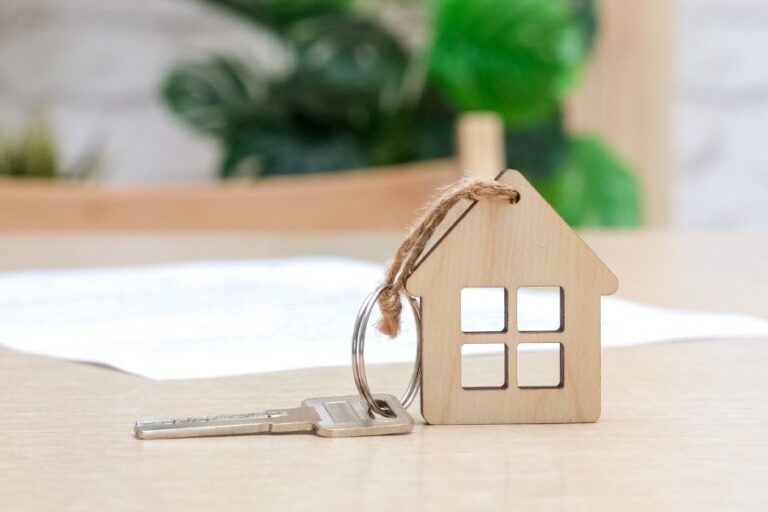So, you’ve got your eye on a property at auction, dreaming of a bargain. But the big question looms: can you get a mortgage to fund that winning bid? The short answer is yes, it’s possible, but it’s a path paved with a few more hurdles and a much tighter timescale than your average property purchase.
For savvy buyers, property auctions can be a goldmine for finding unique properties or bagging a deal below market value. However, the fast-paced nature of auctions, particularly the “traditional” or “unconditional” ones, means you typically need to have your finances squared away before the hammer falls. This is where securing a mortgage can get tricky.

Why Auction Properties Are Different
Auction properties differ significantly from traditional sales in terms of pace, process, and risk. In a conventional property purchase, you typically have weeks or even months to arrange your finances, perform surveys, and handle legal checks.
However, in an auction environment, you’re expected to act much faster. The moment your bid is accepted and the gavel falls, you’re legally obligated to follow through with the purchase, often within 28 days or less.
This urgency places extra pressure on your financing plans. If you don’t have the funds available or your mortgage falls through, you risk losing your deposit and potentially facing legal consequences.
Understanding Auction Sale Types
It’s crucial to understand the type of auction you’re participating in, as this directly impacts your financing timeline and options:
- Traditional Auction (Unconditional Auction): This is the most common type. If you place the winning bid, you exchange contracts and pay a deposit (usually 10% of the purchase price) immediately on the day of the auction. Completion, where the remaining balance is paid, is then legally binding and typically required within a short period, often 20-28 working days. The speed of this process makes it very challenging for standard mortgage applications, often necessitating cash purchases or fast finance like bridging loans.
- Modern Method of Auction (MMA) or Conditional Auction: This type offers more flexibility for buyers needing a mortgage. Upon winning the bid, you typically pay a non-refundable reservation fee or deposit to secure the property. You then have a longer period, often around 28 days (or more, e.g., 40 working days), to exchange contracts, and a further period (e.g., another 28 days) for completion. This extended timeframe makes it more feasible to arrange a mortgage, though you still need to act efficiently. Always check the specific terms of the MMA, as they can vary.
Knowing which auction type a property falls under will help you prepare your finances accordingly and assess the viability of using a mortgage.
What Type of Mortgage Can You Get?
There are several types of financing options available for auction properties. Here’s a more detailed look:
Bridging Loans
These are short-term, interest-only loans designed to provide quick cash flow. Bridging loans are often used when buyers need to complete a purchase before their long-term mortgage comes through or if they plan to refurbish the property before refinancing.
- Pros: Fast approval, flexible use, and ideal for properties needing renovation.
- Cons: Higher interest rates and fees; must be repaid quickly (usually within 12 months).
Buy-to-Let Mortgages
These are suited for investors purchasing properties to rent out. Some lenders offer these even for auction properties, provided the home meets certain livability criteria.
- Pros: Designed for rental income, competitive interest rates for qualified buyers.
- Cons: Property must be immediately rentable; stricter criteria apply.
Standard Residential Mortgages
These can be used if you intend to live in the property and it’s deemed habitable by the lender. However, arranging this type of mortgage before the auction can be challenging.
- Pros: Lower interest rates compared to bridging loans.
- Cons: Slow approval process, often not fast enough for auction timelines.
Specialist Auction Mortgages
Some lenders and brokers specialize in financing auction properties. These loans are structured with auction timelines in mind, ensuring faster processing and a greater understanding of the risks.
- Pros: Tailored for auctions, more lenient criteria, and faster decisions.
- Cons: May come with slightly higher fees or interest rates compared to traditional loans.
Pre-Approval is Crucial
Securing a mortgage Agreement in Principle (AIP) before bidding is not just helpful—it’s essential. An AIP indicates that a lender is willing to offer you a mortgage based on your income and credit history, subject to valuation and property eligibility. This step helps you:
- Know your budget range
- Appear serious and credible at the auction
- Reduce stress after winning a bid
However, an AIP doesn’t mean guaranteed approval. After the auction, the lender will still conduct a valuation and due diligence on the property. If the home is in poor condition or has legal issues, the mortgage can still be denied.
Is the Property Mortgageable?
One of the biggest hurdles is whether the property qualifies for a mortgage. Lenders typically require the property to be:
Structural Soundness
The property must have a stable foundation, an intact roof, and no significant structural defects. Lenders will look for evidence of subsidence, major cracks, rot, or other signs of instability. Issues such as these can render a property “unmortgageable” until they are properly rectified. To confirm the property’s structural integrity, a professional survey is often required.
Essential Facilities
A functioning kitchen and bathroom are non-negotiable for most lenders. The kitchen must have running water and a sink, while the bathroom should have hot and cold water and a working toilet. Properties lacking these basic facilities are generally considered uninhabitable and will not qualify for a standard mortgage. Additionally, having more than one kitchen can complicate mortgage approval, as it may indicate non-residential or multi-unit use.
No Major Damp or Subsidence
The presence of major damp, mold, or subsidence (ground movement causing structural damage) will typically result in a mortgage refusal. Lenders want assurance that the property is safe and not at risk of further deterioration, so any significant issues in this area must be addressed before a mortgage can be approved.
Legal Clarity
The property must have a clean legal title, free from disputes, unresolved planning permissions, or any restrictions that could affect its value or saleability. For leasehold properties, there must be a sufficient lease term remaining, often at least 40-50 years at the end of the mortgage. Any legal encumbrances or unresolved issues can halt the mortgage process entirely.
Minimum Size and Location
Many lenders require the property to be above a certain size, often at least 50 square meters, and located in an area with stable demand. Properties that are too small or situated in remote or undesirable locations may not be accepted for a mortgage, as they are considered higher risk.
Properties in poor condition, such as derelict homes or buildings without a working roof, are often “unmortgageable” in their current state. In such cases, bridging loans or cash purchases are more suitable, followed by refinancing after renovations.
When Is a Property Unmortgageable?
Properties that fall short of these requirements are often labeled “unmortgageable.” Common examples include:
- Derelict homes or those in severe disrepair
- Buildings without a working roof
- Properties lacking basic facilities like running water or a usable bathroom
In these situations, traditional mortgages are usually not an option. Lenders are unwilling to take the risk, as the property does not provide adequate security for the loan.
Alternative Solutions for Unmortgageable Properties
If you’re set on a property that isn’t currently mortgageable, there are still ways to proceed:
- Cash Purchases: If you have the funds available, buying with cash bypasses lender restrictions. This is often the fastest way to secure unmortgageable properties at auction.
- Refinancing After Renovation: After making the property habitable and resolving any legal or structural issues, you can apply for a standard mortgage to replace your initial short-term finance.
Steps to Securing a Mortgage for an Auction Property:
- Get a Mortgage in Principle (MIP): Before you even start browsing auction catalogues seriously, speak to a mortgage broker or lender to get an MIP. This will give you an indication of how much you can borrow. Be upfront that you’re considering an auction purchase.
- Do Your Due Diligence on the Property: Once you’ve identified a potential property, scrutinise the legal pack and consider a survey. This will help you understand if it’s likely to be mortgageable.
- Choose the Right Type of Auction: If relying on a mortgage, a “modern method” or “conditional” auction with a longer completion timeframe is generally a safer bet.
- Inform Your Lender/Broker: Let them know which property you intend to bid on. They will need to arrange a valuation, and the tight auction schedule means this needs to happen quickly.
- Have a Contingency Plan: What if there’s a delay with the mortgage, or the lender’s valuation is lower than your winning bid? It’s wise to have a backup plan.

Frequently Asked Questions
Only if you’ve pre-arranged the process. Ideally, have a lender lined up and ready to act immediately.
You may lose your deposit and could face penalties or legal action. Always have a backup funding option.
Only if it’s still habitable and meets lender criteria. Otherwise, consider a bridging loan first.
Not strictly, but working with one who understands auction properties significantly improves your odds of success.
Finalize Your Auction Property Finance
Yes, you can get a mortgage on an auction property, but it’s not a “walk in the park.” It requires research, speed, and coordination between your solicitor, broker, and lender. For buyers willing to prepare in advance, auction properties offer a fantastic way to purchase below-market-value homes, whether for personal use or investment.
Want to dive deeper into the auction market? Explore our current listings and expert guidance on Real Estate Auctions in Texas to help you win with confidence.


